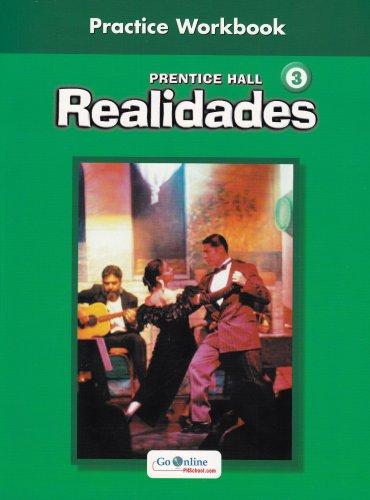
All Solutions
Page 143: 10-11
Marta estaba enferma, pero salió. ¿A Luisa le parece bien eso?/ Marta was sick, but she went out. Is that okay with Luisa?
Ella + habría salido / She would have come out.
We´re using the conditional of haber + the past participle of the verb.
No, ella no habría salido./ No, she would not have come out.
El agua del lago estaba muy fría, sin embargo nadé. ¿A ti te parece bien eso?/ The lake´s water was very cold, however, I swam. Is that okay with you?
Yo + habría nadado/ I would have swam
We´re using the conditional of haber + the past participle of the verb.
No, yo no habría nadado. / No, I would not have swum.
A Pablo no le cae bien Susana, pero él la invitó. ¿A Francisco le parece bien eso?/ Pablo doesn’t like Susana, but he invited her. Is that okay with Francisco?
Él + habría invitado/ He + would have invited
We´re using the conditional of haber + the past participle of the verb.
No, él no la habría invitado./ No, he would not have invited her.
A mí no me gustó la decisión, pero la acepté. ¿A ti te parece bien esto? / I did not like the decision, but I accepted it. Is this okay with you?
Yo + habría aceptado/ I would have accepted
We´re using the conditional of haber + the past participle of the verb.
No, yo no la habría aceptado./ No, I wouldn’t have accepted it.
Sarita tenía prisa y no respetó las reglas. ¿A Uds. les parece bien eso? / Sarita was in a hurry and didn’t respect the rules. Is that okay with you?
Nosotros + habríamos respetado./ We + would have respected
We´re using the conditional of haber + the past participle of the verb.
No, nosotros habríamos respetado las reglas. / No, we would have respected the rules.
Marcos no preguntó y no se enteró del problema. ¿A los otros les parece bien eso?/ Marcos did not ask and did not find out about the problem. Is that okay with the others?
Ellos + se habrían enterado/ They + would have known about.
Ellos + habrían preguntado/ They + would have asked
We´re using the conditional of haber + the past participle of the verb.
No, ellos habrían preguntado y se habrían enterado del problema./ No, they would have asked and found out about the problem
No encontraron la evidencia porque no buscaron en la casa, ¿A Uds. les parece bien eso? / They didn’t find the evidence because they didn’t search the house, is that okay with you?
Nosotros +habríamos encontrado / We + would have found.
Nosotros + habríamos buscado / We + would have searched
We´re using the conditional of haber + the past participle of the verb.
No, nosotros habríamos buscado la evidencia porque habríamos buscado en la casa. / No, we would have searched the evidence because we would have searched the house.
Ellos no comprendían el problema y no lo resolvieron. ¿A ti te parece bien eso? / They did not understand the problem and did not solve it. Is that okay with you?
Ellos + habrían comprendido/ They + would have understood
Ellos + habrían resuelto/ They + would have solved
We´re using the conditional of haber + the past participle of the verb.
No, ellos habrían comprendido el problema y lo habrían resuelto./ No, they would have understood the problem and solved it.
Alfredo no puso atención y no propuso una solución. ¿A nuestros amigos les parece bien eso?/ Alfredo did not pay attention and did not propose a solution. Is that okay with our friends?
Ellos + habrían puesto atención / They would have paid attention.
Ellos + habrían propuesto/ They + would have proposed.
We´re using the conditional of haber + the past participle of the verb.
No, ellos habrían puesto atención y habrían propuesto una solución. / No, they would have paid attention and would have proposed a solution.

